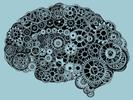Tania Lombrozo appears in the following:
What Junk Food Can Teach Us About Junk Science
Monday, June 08, 2015
If you follow the headlines in nutrition science, you may have come across the claim that a daily bar of dark chocolate could help you lose weight faster. Websites touted the sweet news earlier this year:
"Excellent news: Chocolate can help you lose weight!" (3/31, Huffington Post)
"Need a ...
Storing Information In Other People's Heads
Monday, May 18, 2015
To function effectively in the world, you need to acquire a whole lot of information. You need to know exactly which medicine is appropriate for each ailment. You need to know how to fix your car and your router and your irrigation system. You need to know the date of ...
Explanation, Orgasm And The Need For Basic Science Research Funding
Monday, May 11, 2015
In 1998, my colleague Alison Gopnik wrote a provocative paper comparing the drive for explanations to sexual desire. Just as we're motivated to engage in an evolutionarily beneficial activity — reproduction! — by the promise of orgasm, so, too, we're motivated to discover the basic structure of the ...
A Found Poem For Mother's Day
Monday, May 04, 2015
In anticipation of Mother's Day, I offer you a found poem: the output of Google's autocomplete search function. Start a search for "motherhood is" and you'll learn:
May your Mother's Day this year combine a recognition of the hard with a celebration of the magical.
Tania Lombrozo ...
The Danger Of GMOs: Is It All In Your Mind?
Monday, April 27, 2015
Why do so many people oppose genetically modified organisms, or GMOs?
According to a new paper forthcoming in the journal Trends in Plant Science, it's because opposition to GMOs taps into deep cognitive biases. These biases conspire to make arguments against GMOs intuitive and compelling, whether or not they're ...
Considering 'The Philosophy Of The Web'
Monday, April 20, 2015
We associate technology with the shiny and new. But humans have been using technology to change the environment and themselves since at least the lower Paleolithic period, when our ancestors were making stone tools.
Is the technology of today fundamentally different? In particular, does it change the way we think ...
Are Scientific And Religious Explanations Incompatible?
Monday, April 13, 2015
Last week, I participated in a workshop on the science-religion dialogue during which I was asked: Are scientific and religious explanations philosophically incompatible?
I've been thinking about the question ever since. The simple answers — "yes" or "no" — have advocates, but they don't seem to do the issues justice.
...Ice Cream Activism
Monday, April 06, 2015
Last week, I wrote a post calling for Ruth Bader Ginger ice cream. The post was inspired by Amanda McCall's "10 delicious solutions to Ben & Jerry's women problem," which included suggestions for ice cream flavors honoring a variety of women, from S'moria Steinem to Chocolate Chip Cookie ...
France Takes Aim At Companies That Hire Ultrathin Models
Monday, April 06, 2015
Why We Need Ruth Bader Ginger Ice Cream
Monday, March 30, 2015
Last week, Amanda McCall proposed "10 delicious solutions to Ben & Jerry's women problem": a suite of new flavors calling attention to Ben & Jerry's gross underrepresentation of women in their flavor names.
By McCall's count, only two of Ben & Jerry's more than 20 person-named flavors over the ...
Don't Be Myopic About Heritability
Monday, March 23, 2015
According to a news feature from the journal Nature, shortsightedness could be on the rise because children are spending less time outdoors than they used to.
In short: myopia has undergone a marked increase in the past 50 years, and several studies link this rise to the amount of ...
We Experience The World We Infer, Not The World As It Is
Friday, March 20, 2015
If you want to understand the human mind, you have to reject the idea that we directly perceive and remember the world as it is. Our perceptual experience isn't simply a passive impression of the input received by our senses — and our memory isn't like a photobook or a ...
Easy Knowledge Can Be A Dangerous Thing (Maybe)
Monday, March 09, 2015
We all know a little knowledge can be a dangerous thing. Research increasingly supports a related proposition — that easy knowledge can be a dangerous thing. More specifically, having knowledge at our fingertips, as smartphones and intelligent search algorithms increasingly allow, might have negative consequences for human cognition.
This idea ...
Embrace Your Inner Algorithm
Monday, March 02, 2015
Here's your task: Based on information about individual applicants to an MBA program, you need to predict each applicant's success in the program and in subsequent employment. Specifically, you'll be given basic information — such as the applicant's undergraduate major, GMAT scores, years of work experience and an interview score ...
Exploring The Metaphysics Of Love
Monday, February 16, 2015
Valentine's Day isn't just about flowers and chocolates and heart-shaped candies. It's fundamentally about love. And we all know what love is, right?
Well, not so fast. Is love an emotion? An experience? Is it a kind of desire? Is it possible to love a fictional person? To love more ...
Psychological Biases Play A Part In Vaccination Decisions
Monday, February 09, 2015
With the recent outbreak of measles originating from Disneyland, there's been no shortage of speculation, accusation and recrimination concerning why some people won't vaccinate their children. There's also been some — but only some — more historically and psychologically informed discussion.
Some people's motivation for skipping vaccines ...
Beware Of The Pseudoscience Of Self
Monday, February 02, 2015
When I was a kid, I liked this poem by Jean Little from her collection, Hey World, Here I Am!:
Our History teacher says, "Be proud you're Canadians."
My father says, "You can be proud you're Jewish."
My mother says, "Stand up straight, Kate
Be proud you're tall."
...
Is There Something Uncanny About Machines That Can Think?
Monday, January 26, 2015
Thinking machines are consistently in the news these days, and often a topic of discussion here at 13.7. Last week, Alva Noë came out as a singularity skeptic, and three of us contributed to Edge.org's annual question for 2015: What do you think about machines that think?
In ...
Learning About The Human Mind, Magically
Monday, January 12, 2015
Which is a better magic trick: turning a dove into a glass of milk, or a glass of milk into a dove? Turning a rose into a vase, or a vase into a rose?
For most people, the way these transformations go makes a big difference. In each case, they ...
My Resolution For 2015: Be Smart About My Smartphone
Monday, January 05, 2015
Sometime in 2014, I read Brigid Schulte's Overwhelmed: Work, Love, and Play When No One Has the Time and was struck by this passage comparing the culture of work in America with that in Denmark:
"Most Danes don't feel obligated to check their smartphones and e-mail after hours. ...

















